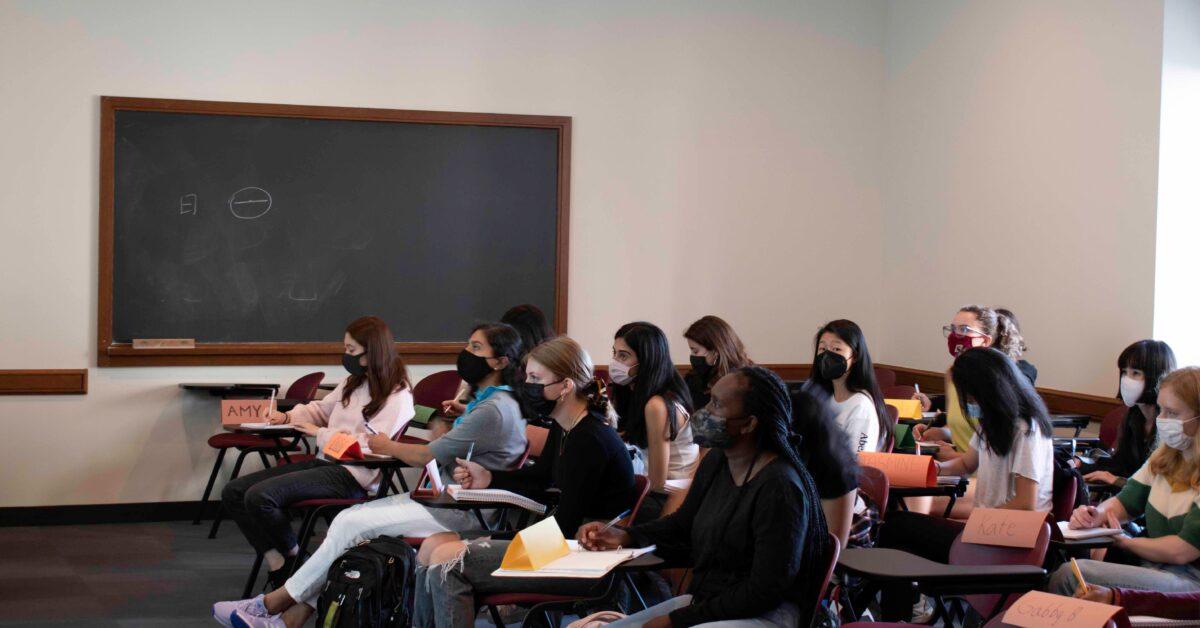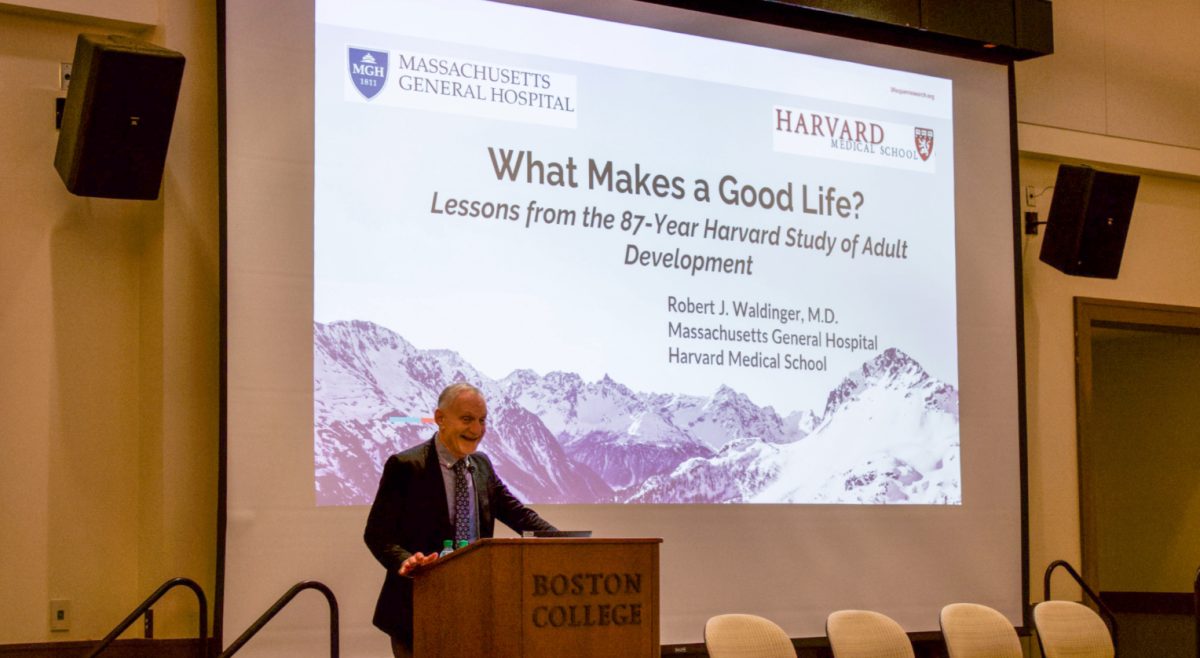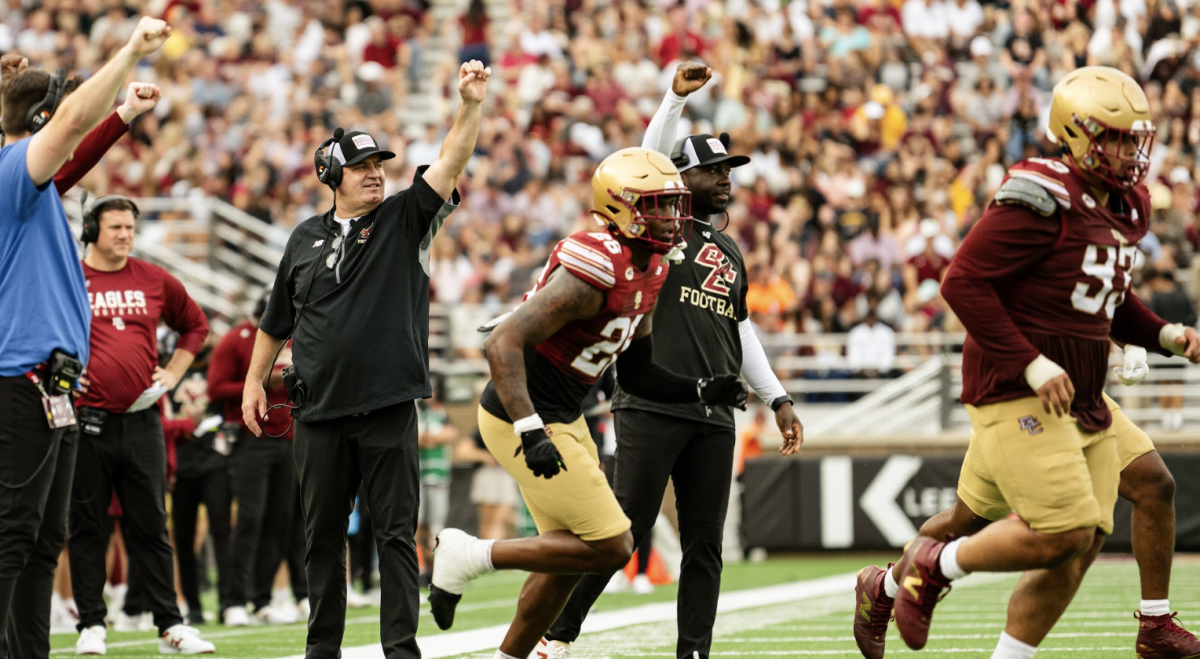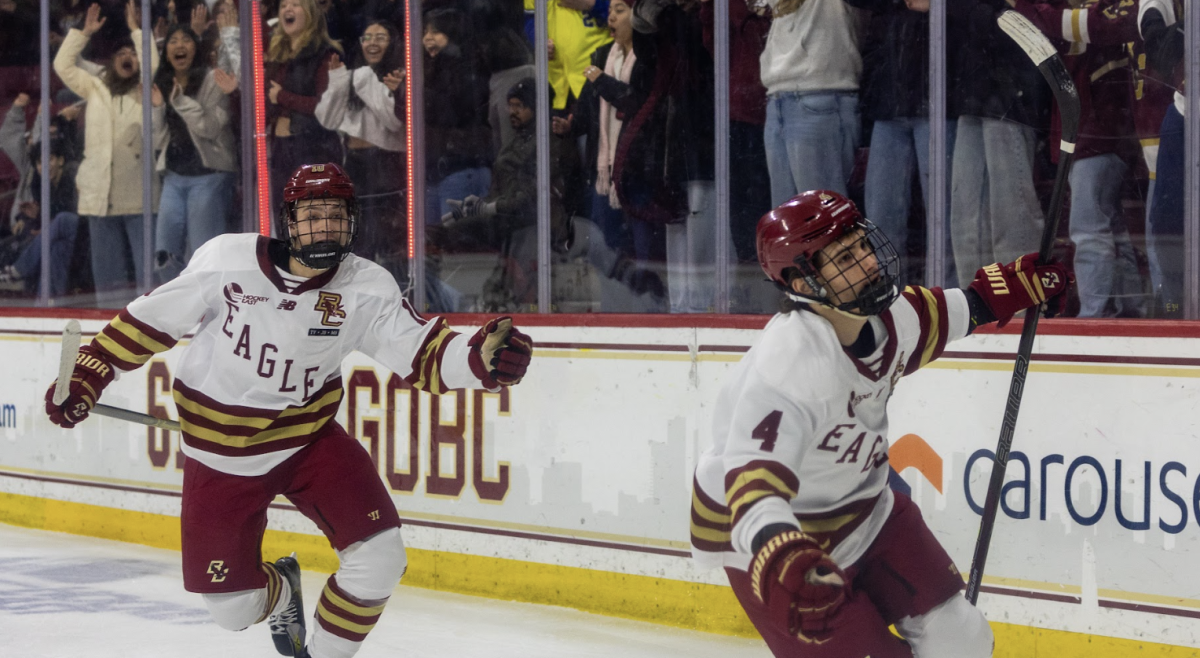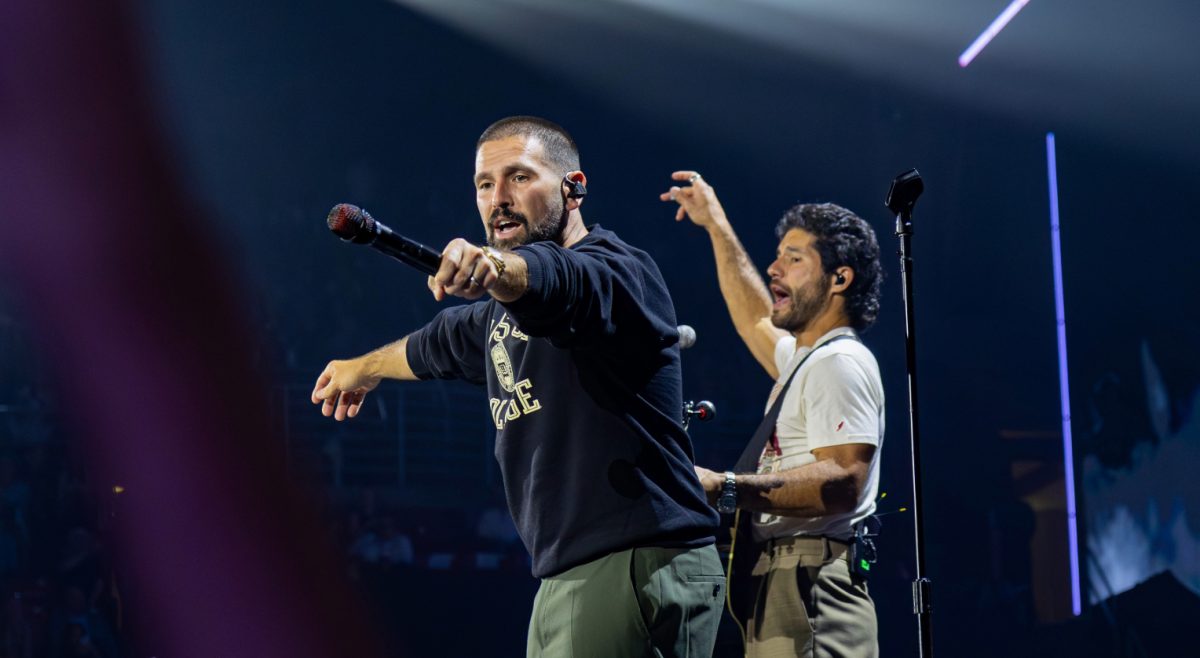The letter cites the dangers of the Delta variant of COVID-19 as the motivation behind the request. It also points to mask mandates for indoor spaces at peer universities and for indoor public spaces in Newton and Boston.
“Given the dangers from the Delta variant of COVID-19, and given the measures that are being taken throughout the state and at peer institutions, BC’s policy is difficult for us to understand,” the letter reads. “BC’s policy appears to impose avoidable risks on faculty, their families, and the students and other clients that they serve, and it introduces unnecessary complexity into classroom relationships.”
In a statement to The Heights on Wednesday, the University encouraged anyone who wishes to wear a mask in the classroom to do so and repeated its intention to be flexible with its COVID-19 policies as needed.
“Boston College mandated vaccination for all students, faculty, and staff and has achieved a 99.3 percent campus vaccination rate, higher than any college or university in the Commonwealth and significantly higher than any municipality,” the statement reads. “The University is in compliance with Boston and Newton requirements for masking in indoor public spaces that are open to the public, (including dining halls, bookstores, and our McMullen Museum), but we have not mandated masks in classrooms in light of our vaccination rates and the desires of students, parents, and many faculty for a normal teaching environment.”
The letter includes a list of faculty concerns in returning to campus, including the Centers for Disease Control and Prevention’s finding that certain vaccinated individuals remain at an increased risk for severe illness from COVID-19 and the presence of unvaccinated children at home.
“We are faculty, and we have counterparts in the administration, but they’re not strangers to us,” said Yonder Gillihan, president of the BC chapter of the American Association of University Professors. “We teach with them. We know them. We go to meetings with them, you know. They’re friends. The letter came out of an ongoing conversation between faculty and administrators, but really … between colleagues.”
The signatories include faculty from the School of Social Work, the BC Law School, the Connell School of Nursing, and the School of Theology and Ministry, among others.
The letter was, in its essence, a call for community, according to Gilda Morelli, an associate professor in the Lynch School of Education and Human Development.
“It’s not to pressure people or to embarrass people, it’s to ask them to consider us as part of a community,” she said.
Gillihan, who is an associate professor in the theology department, said that he recognizes BC’s impressive vaccination rate and thinks that it is “wonderful” that the community is so well protected. But other Jesuit schools that require vaccinations, such as Georgetown University and Santa Clara University, also have indoor mask requirements, he said.
Blake Smith, MCAS ’23, said that after a year of wearing masks everywhere he went at BC, he enjoys the current lack of a mask mandate.
“I think personally I don’t really have a problem with it,” Smith said. “I mean we spent an entire year wearing masks, so to have the freedom to not have to wear a mask every single time I leave my room is nice.”
Despite this, Smith said, he does understand how there could be some concern about BC’s current mask situation.
“I can imagine—especially when I look at other schools, I think most other schools have a mask mandate—so I would say it is a bit concerning that we’re the only school that’s not in line with the rest of schools in the area, but for me I don’t really have a problem with it.”
Morelli teaches a social issues and policies class in the human development program and a master’s course in advanced practicum. Before the academic year, she was anxious to return to maskless classrooms.
“It was creating, sort of, a lot of anxiety for me and worry in general, and also particularly because I have family members who are compromised health wise and would be at higher risk for not only contracting COVID-19 but then suffering dearly if they had,” Morelli said.
This week marked the first time Morelli was teaching in-person classes at BC since the University transitioned to virtual learning at the start of the pandemic in March of 2020.
“I’ve been teaching remotely for the past three semesters,” she said. “So, this semester is the first semester I’m back since lock down. And so, assembling in a room of students who are unmasked … concerned me.”
Morelli said she planned on asking students to wear masks in her classroom, even before hearing that over 300 faculty members also supported indoor masking on the University’s campus.
“If they felt that they couldn’t mask in class for whatever set of reasons, I understood that, but that if they could, would they please,” Morelli said. “And all my students did.”
Morelli said she would be delighted if the University adopts a “blanket policy” regarding mask mandates indoors throughout campus.
“You know students are like mask-on, mask-off, mask-on, mask-off,” Morelli said. “I think it just [would] be much easier, when you step in a building that you mask-on and and be done with it.”
Morelli said she would be disappointed in BC if they failed to adopt a consistent mandate.
“Boston College is about community, and respect for people who are part of communities, and I would feel that it, in some ways, went against the BC ethos of people for one another,” Morelli said. “And so there would be a great amount of disappointment.”
But Morelli does not plan on taking other steps to advocate for masking, aside from signing and supporting the letter.
“By taking the type of action like walking out of classrooms, we harm students as well,” Morelli said. “And so I think this is a delicate balance. And no faculty that I know of, would want to undermine a student’s education and learning.”
Gillihan said that though many faculty members were also looking forward to returning to normal instruction, it became apparent in their conversations that they were not isolated individuals.
“And this is something that comes straight out of Boston College’s best pedagogy,” he said. “We don’t live to ourselves. We don’t, you know, own ourselves. We are products of communities. And it became so clear that the way that we were thinking was not about individual welfare, but about the welfare of everyone in the community.”
Featured Image by Vikrum Singh / Heights Editor

